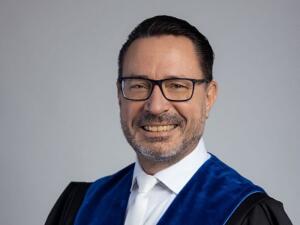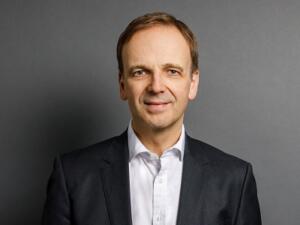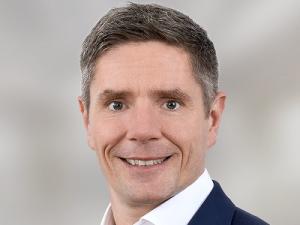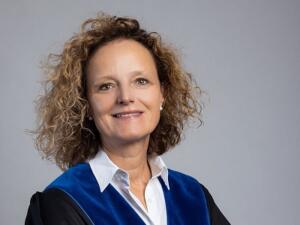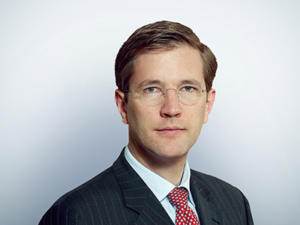The court that never sleeps
Around the Christmas period, the UPC published a number of important decisions. In the dispute between Alexion and Amgen, the Court of Appeal upheld the judgment of the court of first instance. The local division Munich ordered an AASI for the first time against Netgear in a dispute with Huawei. Panasonic, Xiaomi and Oppo are now finally ending their global patent dispute, as can be seen from court decisions. Read our overview of the most important UPC developments of recent weeks.
2 January 2025 by Mathieu Klos
It was only a matter of time before Panasonic formally ended its global patent dispute with Xiaomi and Oppo. The patent holder and the two Chinese implementers had already reached an agreement in principle in October. The UPC local division Mannheim thus did not hear proceedings between Panasonic and Xiaomi that month. However, the parallel dispute with Oppo continued.
LD Munich accepts claim withdrawal
Two decisions from the local division Munich, where Panasonic had sued both Chinese mobile phone manufacturers, now show that the companies applied to withdraw the lawsuits and the court has confirmed this. With regard to Xiaomi, this concerns the lawsuits UPC_CFI_213/2023, UPC_CFI_220/2023 and UPC_CFI_224/2023. With regard to Oppo, the lawsuits UPC_CFI_208/2024, UPC_CFI_221/2024 and UPC_CFI_225/2024 have now been dropped.
According to JUVE Patent information, Xiaomi and Oppo reached a final agreement with Panasonic before Christmas and signed corresponding settlement agreements. As a result, the parties have applied to the local division to withdraw the lawsuits, and the same should also apply to the lawsuits at the regional courts of Mannheim and Munich. However, the courts have not yet announced any corresponding decisions.
The agreement in principle came after the UK Court of Appeal found Panasonic an unwilling licensor and obliged the company to accept an interim licence for Xiaomi. Both companies quickly agreed on general terms of a settlement.
Although Oppo did not join Xiaomi’s UK claim on a FRAND rate determination, the ruling had an impact on the UPC cases. Mid-October, Panasonic and Oppo also agreed on general terms of a settlement. Prior to this, the Mannheim local division had held an initial FRAND hearing in the case.
It then took around two months for both companies to sign the settlement agreement, and in the meantime the Mannheim local division ruled against Oppo for infringing one of Panasonic’s SEPs. The judgment is now considered fundamental for all subsequent SEP and FRAND proceedings at the UPC.
The two companies will meet again on 16 January at the local division in Munich for an interim hearing in a parallel infringement suit by Huawei. The oral hearing will then take place on 25 March 2025.
First AASI order
Shortly before Christmas, the local division Munich issued a so-called anti-anti-suit injunction in the dispute between Huawei and Netgear over wifi-6 technology. The court has now published its decision (case ID: UPC_CFI_791/2024).
It prohibits Netgear from pursuing an anti-suit or anti-enforcement application at the US District Court of California. The judgment also prohibits the company from pursuing or even enforcing ASI motions directed against proceedings at the UPC in the future.
The Munich local division under presiding judge Matthias Zigann issued the ex-parte decision on 11 December. The division published the decision on 27 December. It is the UPC’s first published decision on an AASI application to date. JUVE Patent is not aware of any other ASI or AASI decisions in other disputes.
The Munich Regional Court is also said to have approved a corresponding application by Huawei and issued an AASI against Netgear. However, the court has not yet confirmed this to JUVE Patent.
ASI withdrawn in US
Before Christmas Netgear withdrew its ASI application in the US. On 4 December Netgear had filed a motion with the District Court of California (case ID: 2:24-cv-00824-AB-AJRx) requesting the court enjoin Huawei from seeking or enforcing injunctions obtained through proceedings in foreign courts which would enjoin the manufacturing or sale of Netgear wifi-capable products based on SEPs subject to the worldwide licensing claims filed by Netgear at the California Federal Court.
- Matthias Zigann
- Christian Harmsen
- Tobias Hessel
Netgear also requested the court set an interim licence, but apparently did not withdraw this request.
Netgear’s application was likely directed against a potential injunction from the local division Munich. On 18 December the local division ruled against Netgear and banned the company from selling wifi-6-capable routers in Belgium, Finland, France, Germany, Italy and Sweden.
As in the infringement dispute, Huawei was represented in the AASI application by a Bird & Bird team led by Christian Harmsen and a team led by Tobias Hessel from Clifford Chance. A Freshfields team led by Stephan Dorn and Frank-Erich Hufnagel generally represents Netgear in the disputes with Huawei at the UPC, but did not appear in the ex-parte proceedings.
Alexion unsuccessful at Court of Appeal
With its two PI applications against Amgen and Samsung Bioepis, Alexion has now also failed before the UPC Court of Appeal. Under its president Klaus Grabinski, the first senate of the Court of Appeal comprising Peter Blok, Emmanuel Gougé and the two technically qualified judges Eric Enderlin, and Anna Hedberg rejected Alexion’s appeal against the rulings from the local division Hamburg (case IDs: UPC_CoA_405/2024 and UPC_CoA_402/2024).
- Klaus Grabinski
- Sabine Klepsch
In July 2024, AstraZeneca subsidiary Alexion had failed to gain PIs against Amgen and Samsung Bioepis at the local division Hamburg. The court under presiding judge Sabine Klepsch found infringement, but had doubts that Alexion’s patent EP 3 167 888 B1 would survive an opposition at the EPO and thus rejected the applications.
Alexion wanted the court to prohibit Amgen and Samsung Bioepis from selling their drugs, Bekemv and Epysqli respectively, for treating rare blood diseases in the UPC territory. The two products are based on biosimilars of the antibody eculizumab. Alexion markets the original product under the brand name Soliris. The EPO had granted EP 888, whereupon Samsung Bioepis filed an opposition in May 2024. In addition, Amgen filed a central revocation action against EP 888 with the UPC’s central division in Paris (case ID: ACT_59173/2024).
Doubts for opposition
The Court of Appeal in Luxembourg has now confirmed the decision of the local division Hamburg. The appeal judges also have doubts that EP 888 will survive the EPO opposition proceedings. According to their own case law, UPC courts may not issue PIs in such cases. The dispute is worth €100 million.
- Tilman Müller-Stoy
- Scott Parker
- Wolrad Prinz zu Waldeck und Pyrmont
Alexion had filed the PIs with the help of a German lawyer team from Freshfields around Wolrad Prinz zu Waldeck und Pyrmont, Christopher Stothers and Elena Hennecke. The team also included Gregor König and Claudia Hertzsch from Düsseldorf patent attorney firm König Szynka Tilmann von Renesse.
Amgen retained a Bardehle Pagenberg team consisting of lawyers Tilman Müller-Stoy, Tobias Wuttke and Dominik Woll and patent attorneys Axel Berger and Markus Ackermann. Osborne Clark UK partner Tim Harris was also present on behalf of Amgen.
Samsung Bioepis relied on Simmons & Simmons lawyers Peter Meyer, Scott Parker, Andrea Ritter and Elsa Glauert as well as patent attorney Fritz Lahrtz.
The parties are also facing off in the US, as well as in revocation actions at national courts in the UK and the Netherlands. In Germany, Alexion and Amgen were involved in a case concerning orphan drug exclusivity.
